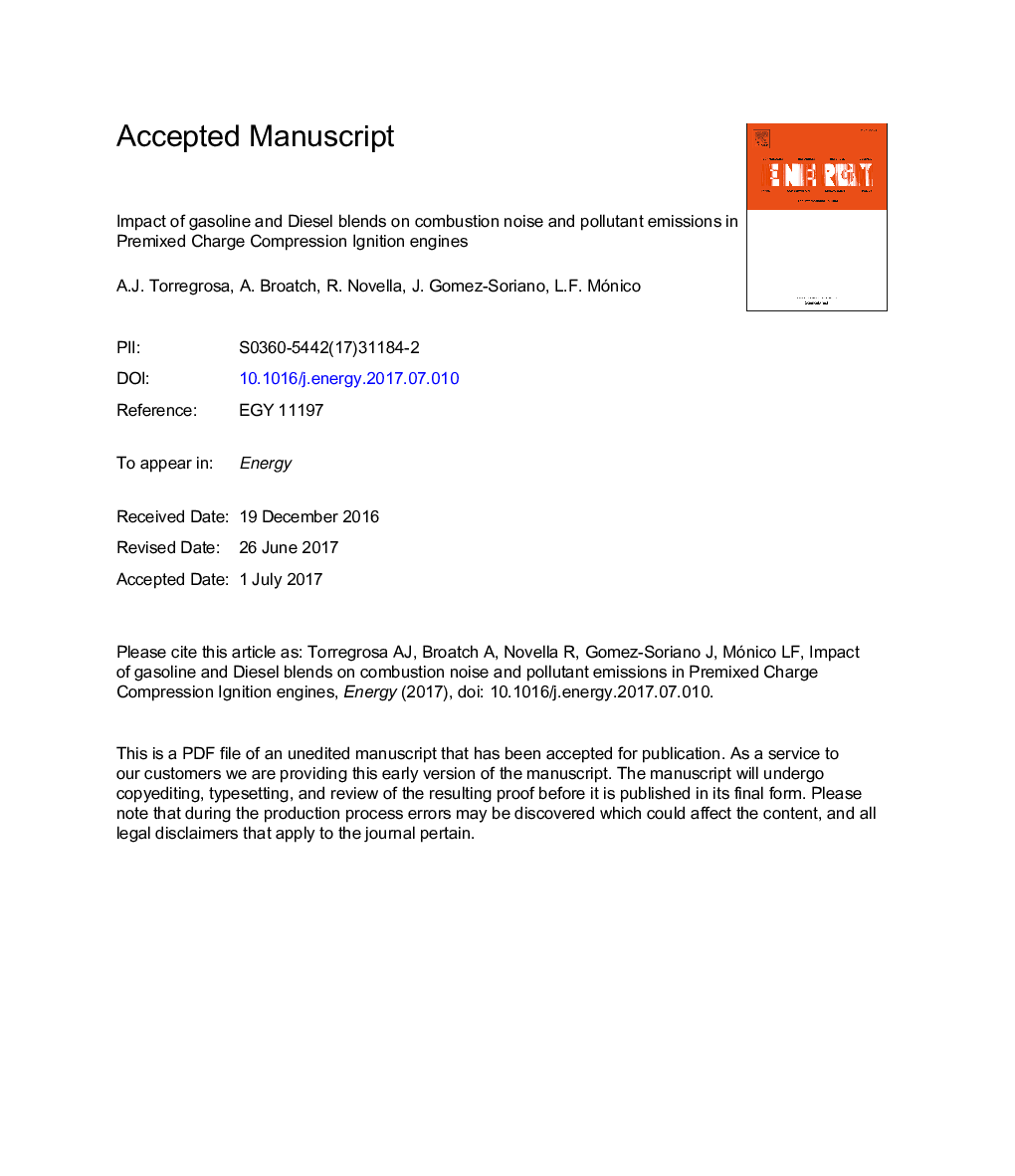| Article ID | Journal | Published Year | Pages | File Type |
|---|---|---|---|---|
| 5475737 | Energy | 2017 | 25 Pages |
Abstract
Research efforts in the automotive sector focus on developing new combustion concepts for mitigating the emissions of nitrous oxides and soot of conventional Diesel combustion. One of the most promising concept is the Premixed Charge Compression Ignition. In this, the fuel burns in premixed conditions, avoiding the formation of soot whereas nitrous oxides are controlled using large amounts of exhaust gas recirculation. Because of the premixed combustion, high fuel-burning velocities are produced, whence combustion noise is deteriorated. In order to mitigate this drawback, different blends of gasoline and Diesel fuels are being considered due to their suitability for this combustion characteristics. The effect of these fuel blends on emissions, performance and engine noise is analysed in this paper with the aim to provide additional knowledge of the fundamental issues of this particular combustion mode. The study also includes sweeps of both the start of injection and the amount of exhaust gas recirculation, in order to evaluate further degrees of freedom in the optimisation of the engine settings. Results show that the consideration of the engine noise together with both performance and emissions, reduces dramatically the margin of variation of the combustion settings, limiting therefore the operation range of the engine.
Related Topics
Physical Sciences and Engineering
Energy
Energy (General)
Authors
A.J. Torregrosa, A. Broatch, R. Novella, J. Gomez-Soriano, L.F. Mónico,
